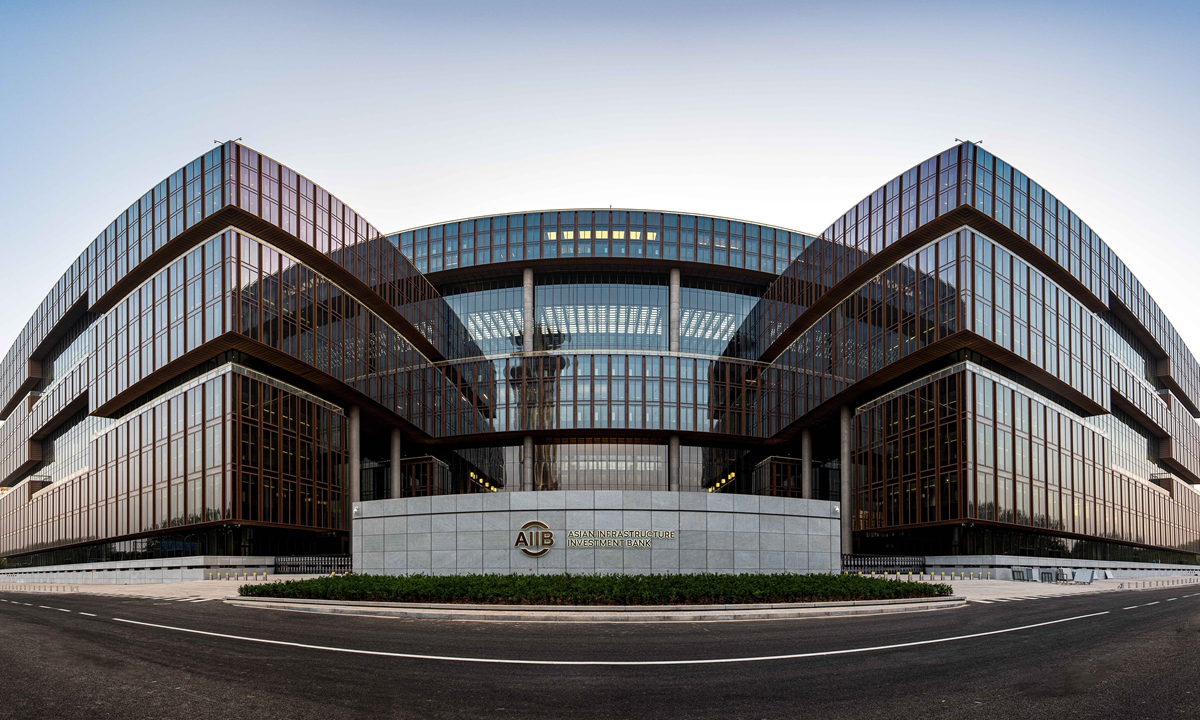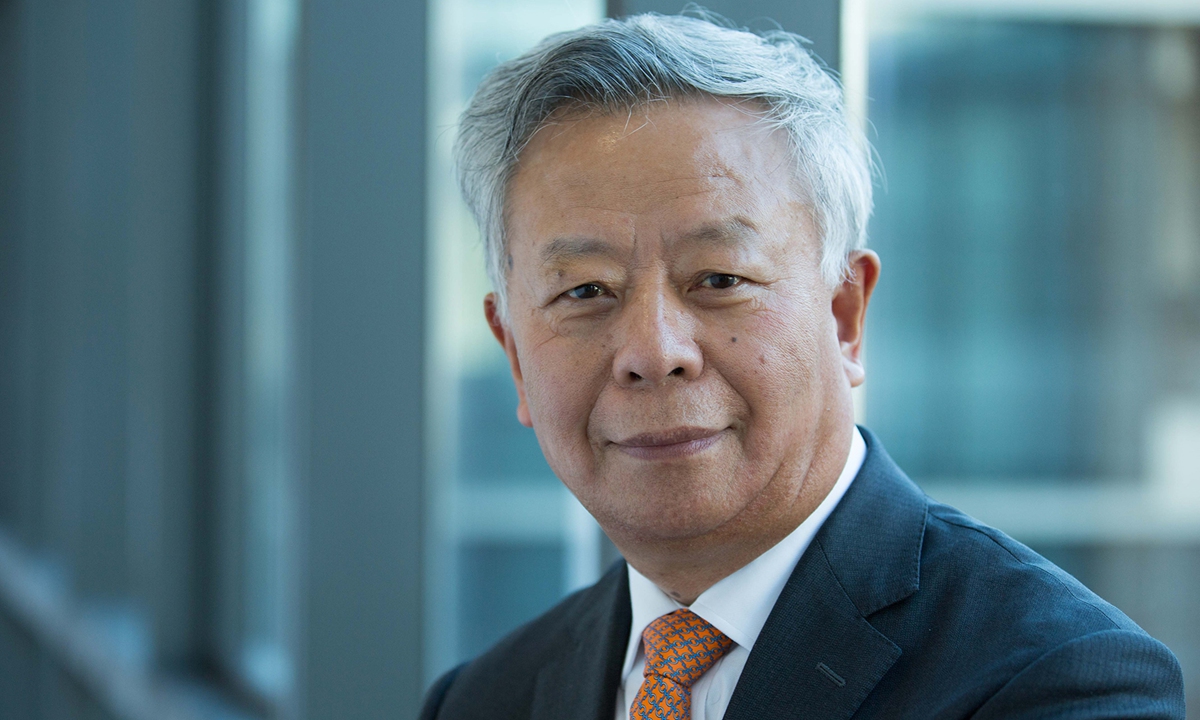
Photo: AIIB
On the eve of its fifth anniversary, the Asian Infrastructure Investment Bank (AIIB) has highlighted green, technology-enabled infrastructure and regional cooperation that will shape Asia's recovery in the post-COVID-19 era, reflecting the need for the infrastructure sector to manage short-term challenges of the pandemic and the global economic downturn, as well as mid- to- long-term revolutions of demographic changes, climate change and the ongoing digital transformation.
"AIIB's milestone arrives against the backdrop of increasingly uncertain and challenging economic conditions across the world," AIIB President and Chair of the Board Jin Liqun said on Wednesday at press conference, pointing out five important shifts within the infrastructure development landscape.

AIIB President and Chair of the Board Jin Liqun Photo: Courtesy of AIIB
Facing future shocks from climate change, the bank suggested post-crisis recovery programs "should not be carbon-dependent," which presents policymakers with an opportunity to align public policies more closely with climate objectives, thereby limiting the risk of locking-in carbon-intensive infrastructure.
"Green is in our DNA as everything we do has to be sustainable," Stefen Shin, AIIB Principal Investment Officer, told the Global Times in
a previous interview.
Responding to a question whether the bank will consider funding nuclear power projects, Jin on Wednesday dismissed the idea, saying AIIB instead is interested in supporting safe new energy projects, including solar power, wind energy and hydroelectric projects.
Another trend found by the bank is a weak link of social infrastructure which has suffered from underinvestment in many countries at difference income levels.
According to estimates from the Global Infrastructure Hub, transactions in social infrastructure fell from $19 billion to less than $3 billion in 2019.
"Given the limited public spending in social infrastructure and the challenges of a post-COVID-19 recovery, catalyzing private capital flows into public investment takes on more relevance and is absolutely necessary," the bank stressed.
Warning that countries will have to deal with widespread bankruptcies, increased unemployment and high debt levels, the multilateral development bank suggested asset recycling or privatization as a potential path forward.
Although new technology and innovation have already used in infrastructure building, COVID-19 has been a game changer heightening the awareness of wider usages of technologies, the bank noted.
For instance, drones and robots have been used to disinfect public places in China, UK and many other countries throughout the pandemic.
Connectivity infrastructure and regional cooperation will still be likely to face mixed fortunes over the years ahead. "The global supply chain has been basically resilient throughout the crisis. But supply chain infrastructure investment will continue to face uncertainty, given the trade and technology-related tensions as well as ongoing discussions on reshoring or nearshoring of activities," the bank said.
However, there will be "no-regret" investments. Investing in smarter road infrastructure, with greater digitalization and in preparation for an all-electric future, are also likely to pay off in the long run, it added.
Giving recognition on the strong regional cooperation in Asia over the recent years, Jin also highlighted a point that "Asian countries don't just lock inwardly. Asian countries try to reach out, to improve the connectivity with the rest of the world."
Specifically, he said the inking of the Regional Comprehensive Economic Partnership and finishing negotiations of the China-Europe bilateral investment treaty would benefit the AIIB to enhance the connectivity on a global scope.
Setting ambitious targets, AIIB aims to allocate 50 percent of its financing for climate action by 2025, 25-30 percent for cross border connectivity by 2030 and half for private sector operations by 2030 as well.
Since its establishment in 2016, the development bank has grown its members from 57 to 103. Over the past five years, it has approved $22.02 billion investments accumulatively.
In 2020, it approved $9.98 billion despite the pandemic, more than double than the figure in 2019. Jin said the bank's lending in 2021 is expected to reach to the same level as last year.





